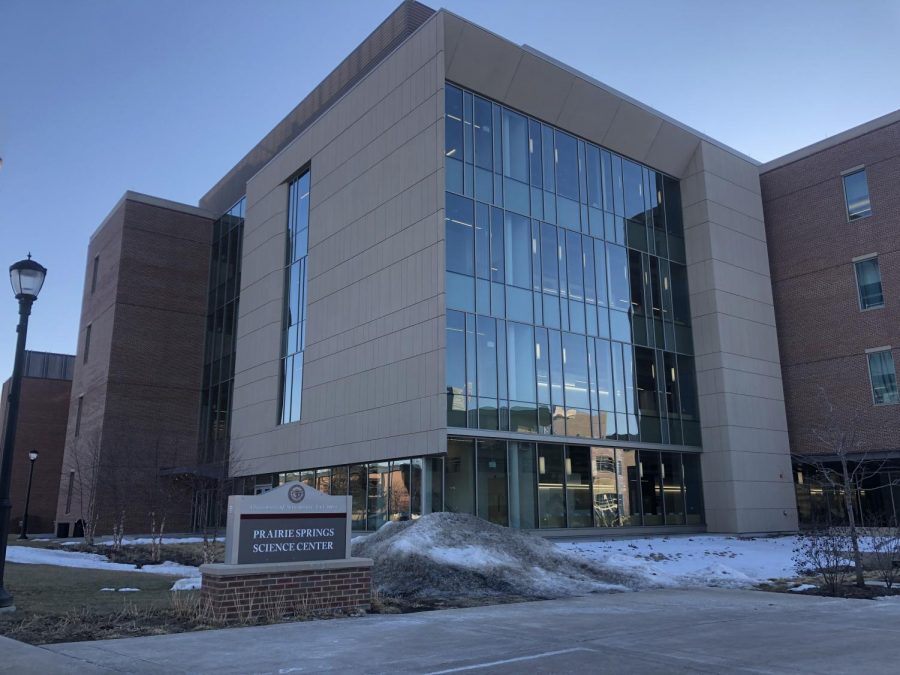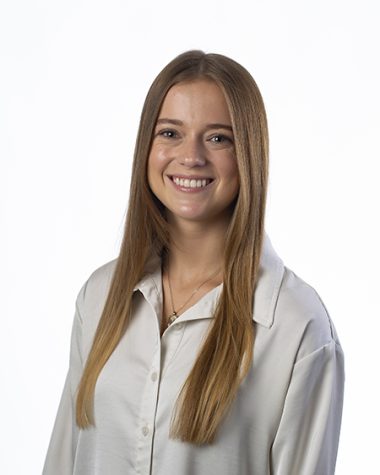Joint Planning and Budget Committee meets to discuss the future financial plans for UWL
March 2, 2021
The University of Wisconsin-La Crosse Joint Planning and Budget (JP&B) Committee met virtually on Wednesday, Feb. 24 to discuss updates and changes being made around campus, the state budget proposal, and UWL’s part in sustainability.
The meeting was led by Becki Elkins, an associate professor and administrator in student affairs at UWL. According to the by-laws and procedures, JP&B represents the university community regarding planning and budget decisions. The committee will make recommendations to the Chancellor regarding budget planning and proposals and reporting actions to the governance groups and the campus community.
Chancellor Joe Gow gave an update regarding campus updates. Following the COVID-19 pandemic and vaccination process, Gow is optimistic that UWL campus will become a vaccination center in the near future. No decisions have been made yet regarding this.
Along with the pandemic, there have been questions surrounding what the spring graduation ceremony will look like in terms of an in-person or an online ceremony. “We’re going to try and put together an in-person graduate ceremony in May for only the graduates, no spectators,” said Gow, “things are looking really good for UWL.”
Next on the agenda was focused upon Governor Tony Evers 2021-2023 state budget proposal. The Governor is calling the two-year budget a blueprint “to make sure we bounce back and better than before.” Phase II of the Prairie Springs center did get approved in this budget which will follow along with the construction plans.
Joint Committee on Environmental Sustainability (JCES) Co-Chair Andrew Ericson presented the sustainability strategic plan goals. This presentation revolved around integrating sustainability into current pillars.
Represented by Ericson, JCES supports the efforts to reaffirm the 2016-2020 strategic plan and believes the goals need to be revisited due to many changes happening since 2016. “We expect the University to align itself as a leader in sustainability,” said Ericson.
“UWL has historically recognized sustainability solely as an environmental concept, whereas sustainability is far-reaching and incapsulates more than just the environment,” said Ericson. JCES hopes to integrate sustainability into four current pillars.
The first pillar that JCES hopes to establish sustainability within is community engagement in that UWL embraces it as a key component to the teaching, scholarly, and service mission.
The sustainability goal integration for this pillar is to become the regional leader in environmental and sustainability education, activism, and responsibility, as well as leverage past and ongoing successes in environmental and sustainability efforts to build value with community stakeholders.
The second pillar is equity and diversity. This pillar states that UWL is committed to being an equitable and welcoming community to maintain the status as a high-quality and competitive university.
The sustainability goal integration with this pillar is to highlight and educate the relevancy of intersectionality between the world’s most significant issues including, but not limited to, gender rights, race relations, and climate change. Also, to ensure inclusive and equitable sustainability education to promote lifelong opportunities for all.
The third pillar is to invest in our people. It states that UWL recognizes that our status as a high-quality and competitive university depends on our faculty and staff.
The sustainability goal JCES hopes to integrate is to promote an environment of employee development through ownership, inclusion, and engagement in sustainable programs and facilities, as well as to accelerate engagement in climate change mitigation efforts, to ensure a safe and sustainable world for the UWL community.
The last pillar is transformational education. This pillar states that high-impact teaching and learning opportunities are proven to aid student success across diverse backgrounds.
The sustainability goal JCES wants to integrate is further environmental literacy to help UWL graduates address the demands of a world confronted by a climate crisis and to integrate sustainability into experiential learning opportunities and undergraduate research across disciplines. The final goal is to promote faculty efforts to embed sustainability concepts and teaching across the curriculum.
The next Joint Planning and Budget Committee meeting will be Wednesday, March 10 at 1:15 pm. The link to that meeting can be found here.







